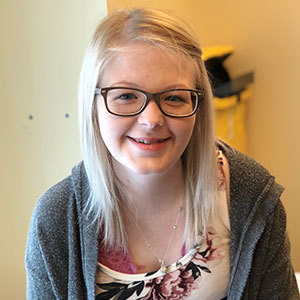Dr. Jin-A Lee, from SickKids was recently awarded a two year research fellowship grant from Cystic Fibrosis Canada for her research study, A mutation-independent role of TMEM16A in airway cystic fibrosis therapy.
Research fellowships are awarded to applicants to our Grants & Awards Competition who have completed a PhD or MD degree within the last five years and are doing an independent research project in an academic lab. Dr. Lee hopes to identify the role of TMEM16A, which is a calcium-chloride channel, as well as determine the effects of upregulating TMEM16A in helping epithelial function. The ultimate goal is to find a way to target TMEM16A to help compensate for defective CFTR function in CF patients.
Dr. Lee’s research relates to the community health priority: Cure CF with gene or stem cell therapies. It and also focuses on individuals who will not benefit from modulators.
Learn more in our interview with Dr. Jin-A Lee, below.
How did you become involved in cystic fibrosis research?
Before I came to Canada, I was not familiar with cystic fibrosis; it was not a prominent disease in Korea. Once I moved to Canada and started working at the Hospital for Sick Children, I started to learn more about cystic fibrosis and the many aspects to be studied about this rare disease. In Korea, there is currently only one lab that is studying cystic fibrosis, but in Canada and at SickKids, there are many researchers who study cystic fibrosis. It has been super interesting to learn more about cystic fibrosis and to work on my study to help the community.
What do you enjoy most about your work?
I love to discover new things and I hope we can identify various treatments and drugs that might have the potential to help people with cystic fibrosis. Working with Cystic Fibrosis Canada allows me to be one step closer to people who have cystic fibrosis and I feel that I am helping them more directly. When you do research, you tend to be detached from the patients and the community. But with cystic fibrosis research, I feel closer to the community and a greater connection to the work.
The CFTR modulators have been a major event for Canadians with cystic fibrosis, but we see the various responses from each patient, and we don’t yet know the long-term effects. There are many areas of cystic fibrosis that still need to be studied and improved.
Can you explain what TMEM16A is and why it’s important to determine its function in the lungs for CF patients?
CFTR is a chloride channel in the lungs and other locations. In the lungs, it helps to move chloride across the surface, and water follows, keeping the airways hydrated. This is defective when there are mutations in CFTR. CF modulators help to increase the function of the CFTR protein with certain mutations, such as F508del. However, there is a large patient-to-patient variation in response to modulators. Many CF mutations are also not eligible for CFTR modulator treatment. So many patients still need a treatment, or need a better treatment and that is why there is room for new therapies. I am targeting TMEM16A, which is a different chloride channel also in the lungs. We want to understand more about TMEM16A and learn if there are ways we can target this channel to at least partially compensate for defective CFTR. Any future treatment involving TMEM16A has the advantage that it should work regardless of what CFTR mutation a patient has. This includes people who won’t benefit from Trikafta.
What will this mean for people living with cystic fibrosis?
I feel that any potential new treatment may be beneficial for the cystic fibrosis community. Since the CFTR modulators won’t work for everyone with cystic fibrosis, any potential new type of treatment is exciting for the community. If I were a parent of someone with cystic fibrosis, whether it is a new drug or not, I would want to try whatever may have a benefit. Because of CFTR modulators, people’s life expectancies are increasing significantly. So, it can only move forward from here.
What are your next steps in cystic fibrosis research?
I hope to start my own lab and begin the discovery of new therapies for cystic fibrosis. I have some ideas for this already, but there is so much potential to keep studying cystic fibrosis. For example, we don’t understand all of the environment factors that impact a developing embryo. Since there are so many known and unknown environmental factors around us, I think it would be interesting to look at whether these factors have an impact on cystic fibrosis symptoms in utero and after birth.
Overall, I want to help people with cystic fibrosis live longer through my research. I want to discover new therapies as well as to better understand the impact of environmental factors on the airways for those with cystic fibrosis, so they don’t have to worry about a limit on their life.


.png)


